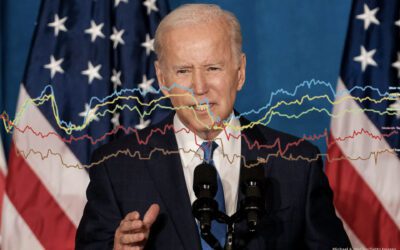As President Obama ends his first 100 days in office, Americans are increasingly optimistic about the president, his policies and the country. The mood in the country is as positive as it has been since late 2003, with 43 percent now saying the country is going in the right direction, compared to 46 who say things are off on the wrong track. While this is mostly driven by Democrats buoyed by the Obama presidency, optimism is also on the rise among independents and even Republicans, among whom the “right direction” number has more than doubled since early March.
We are not going to try to compete with the superlatives about President Obama’s first 100 days. Instead, we simply want to underscore the nuanced but interesting picture people have of his leadership, direction and progress in key areas, as well as concerns about the spending deficits necessary to address the current crisis. As the economy contracts sharply and unemployment rises, the president is gaining voters’ confidence.
Most striking is the two-thirds who agree with his direction and plans and the 42 percent who agree strongly with them. What is most interesting about the survey is the cluster of reactions people are having to the president as a leader and in his work. He is seen as strong and on people’s side, with good plans and bringing hope to the country. He is seen to be making progress on transparency in government, restoring American respect in the world and dealing with Iraq, and in bringing greater economic fairness with middle class relief. The combination of addressing the economic crisis and the security situation in Afghanistan and Iraq, while displaying a welcome amount of competence and intelligence more generally, is allowing voters to see a little bit of Presidents Kennedy, Clinton, Carter and Roosevelt in Obama. While Obama continues to strengthen, the Republican Party is reeling.
The defection of Pennsylvania Senator Arlen Specter is just the latest sign of a party in crisis, a sign this survey confirms. Republicans continue to lag in partisan self-identification as moderates now associate with the Democratic Party by more than a two-to-one ratio. Meanwhile, the Republican brand remains deeply unpopular, with the party sporting a net favorability rating of -15 points. More troubling for the Republican Party, fully a quarter of voters find nothing encouraging about their actions during Obama’s first 100 days. This memo is based on a national survey of 1,000 2008 voters, including 158 interviewed on cell phones (124 unweighted) and 851 likely 2010 voters (867 unweighted), conducted for Democracy Corps by Greenberg Quinlan Rosner, April 22-26, 2009. Margin of error is 3.1 percent.




